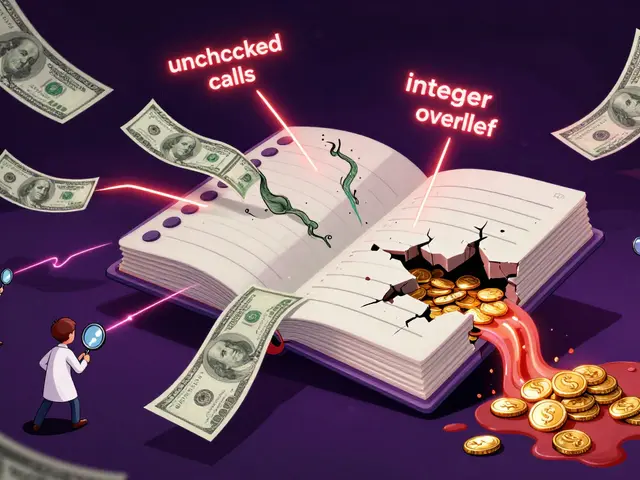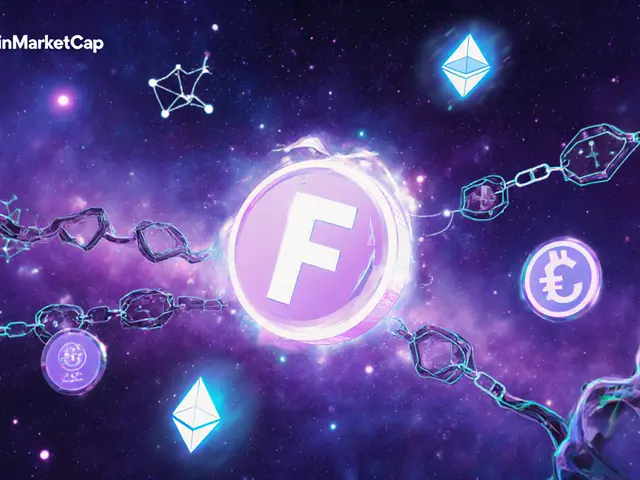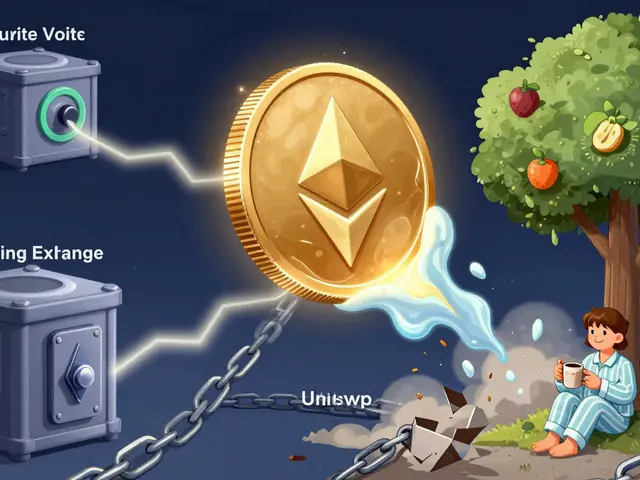Smart Contract Audit Cost Calculator
Calculate Your Audit Cost
Recommended Auditors
Select your contract details to see recommended auditors
Estimated cost range will appear here after calculation
Smart contracts are the backbone of DeFi, NFTs, and decentralized apps-but they’re only as safe as the code they’re built on. One line of flawed code can cost millions. That’s why top blockchain projects don’t just write smart contracts-they hire experts to audit them before launch. In 2025, the smart contract auditing industry is more critical than ever. With over $1.2 trillion locked in DeFi protocols and regulatory scrutiny rising, choosing the right auditor isn’t optional-it’s survival.
Why Smart Contract Audits Matter
A smart contract audit is like a security inspection for blockchain code. It’s not just about finding bugs. It’s about catching logic flaws, reentrancy attacks, overflow errors, and access control issues that automated tools often miss. In 2024 alone, over $2.3 billion was lost to smart contract exploits. The biggest hacks-like the Poly Network breach and the Ronin Network heist-happened because no one checked the code properly. Audits aren’t magic. They don’t guarantee 100% safety. But they reduce risk by 80% or more when done right. Top firms combine manual code review, automated scanning, formal verification, and real-time monitoring. The best ones don’t just hand you a report-they help you fix what’s broken.CertiK: The Scale Leader
CertiK is the biggest name in smart contract auditing today. With over 3,000 audited projects and more than $360 billion in secured value, they’re the default choice for large DeFi protocols and institutional clients. What sets them apart is their Skynet system-a real-time monitoring network that watches live contracts for suspicious activity after deployment. They use formal verification, a mathematical method that proves code behaves exactly as intended. This isn’t just checking for syntax errors. It’s proving that a contract can’t be drained under any possible scenario. That’s why projects like Aave, Chainlink, and Polygon use CertiK. Their reports are detailed, their turnaround is fast (usually 2-3 weeks), and their post-audit monitoring gives teams peace of mind. But it’s not perfect. Some developers say CertiK’s pricing is steep, and their team can feel impersonal on smaller projects. If you’re raising millions and need maximum assurance, CertiK is the safest bet.ConsenSys Diligence: The Ethereum Powerhouse
Founded by Ethereum co-founder Joe Lubin, ConsenSys Diligence isn’t just an auditor-they’re part of the Ethereum ecosystem. They’ve audited over 100 projects securing $11+ billion in value, including major names like Uniswap and MetaMask. Their strength? Deep Ethereum expertise. They know how the network works under the hood. They don’t just audit contracts-they help you build them right from the start. Many teams use their tools like Truffle and Infura alongside their audit services. This integration means fewer surprises during deployment. They also offer ongoing support. If a new exploit emerges after your contract goes live, they’ll alert you. Their reports are thorough, clear, and include step-by-step fixes. If you’re building on Ethereum or its layer-2s like Arbitrum or Optimism, ConsenSys Diligence is the most natural partner.OpenZeppelin: The Developer’s Best Friend
OpenZeppelin started in 2015, back when smart contract security was still a new idea. Today, they’re the most trusted name among developers. Why? Because they don’t just audit-they teach. Their open-source library of audited, reusable code modules (like ERC20, ERC721, and access control contracts) is used by over 80% of new DeFi projects. If you’re using OpenZeppelin’s code, you’re already safer. Their audits focus on how your custom code interacts with these libraries, catching integration flaws others miss. They also run the Defender platform, which helps teams monitor, automate, and secure contracts after launch. Their documentation is the best in the industry. Developers love them because they answer questions, explain fixes in plain language, and don’t just say “this is broken.” They show you how to fix it. If you’re a builder who wants to learn while you secure, OpenZeppelin is your go-to.
Cyfrin: The Rising Contender
Cyfrin is the quiet powerhouse. Founded by former blockchain engineers from top firms, they’ve audited over 200 projects securing $15 billion in value. What makes them stand out? Their team is small, but every auditor has 10+ years of cybersecurity experience. They don’t use flashy AI tools or automated dashboards. They do deep, manual reviews-line by line, function by function. Their reports are brutally honest. They’ll tell you if your contract is poorly designed, even if it technically works. Clients praise their communication. You get direct access to the lead auditor, not a project manager. Turnaround is quick (often under 10 days), and pricing is more competitive than CertiK or ConsenSys. They’re ideal for mid-sized projects that need expert-level scrutiny without enterprise pricing.SlowMist: The Asia-Focused Authority
SlowMist is the go-to auditor for projects targeting Asian markets. Founded in 2018, they’ve audited over 1,500 projects across Ethereum, BSC, Solana, and Polygon. They’re especially trusted by exchanges, NFT platforms, and Web3 games in China, Japan, and South Korea. Beyond audits, they offer a vulnerability disclosure platform called SlowMist Zone and an AML tracking tool called MistTrack. This makes them unique. If your project needs to comply with regional regulations or wants to build trust with Asian users, SlowMist’s full-stack security approach adds real value. Some Western teams report slower communication and less detailed English reports. But for projects with global ambitions-especially in Asia-they’re unmatched.Hashlock: The Independent Choice
Based in Australia, Hashlock is one of the few truly independent firms. Their founding team has over 20 years of combined cybersecurity experience from traditional finance and defense sectors. They’ve audited 50+ blockchain projects with no ties to venture capital or blockchain tooling companies. They don’t sell software. They don’t run monitoring networks. They just audit. This independence builds trust. Clients appreciate their blunt, no-nonsense reports. They’ll tell you if your project is too risky to launch-not because they’re harsh, but because they’ve seen what happens when corners are cut. They’re slower than the giants-typically 3-4 weeks-but their attention to detail is exceptional. If you’re a startup that values integrity over branding, Hashlock is a hidden gem.How to Choose the Right Auditor
Not all audits are the same. Here’s how to pick:- For large DeFi protocols: Go with CertiK or ConsenSys Diligence. Their scale and monitoring tools reduce long-term risk.
- For Ethereum-based apps: ConsenSys Diligence or OpenZeppelin. They know the chain inside out.
- For developers who want to learn: OpenZeppelin. Their libraries and docs are education in disguise.
- For mid-sized projects with tight budgets: Cyfrin. High quality, lower cost, direct access.
- For Asian market entry: SlowMist. Their compliance tools and regional trust matter.
- For independent, unbiased reviews: Hashlock. No agenda, just expertise.

What to Expect During an Audit
Most audits take 2-8 weeks, depending on complexity. Here’s the typical process:- You submit your smart contract code, documentation, and test scripts.
- The firm runs automated scans and checks for known vulnerabilities.
- Senior auditors manually review every function, especially those handling funds.
- You get a detailed report listing issues by severity: Critical, High, Medium, Low.
- You fix the issues and resubmit.
- The auditor verifies fixes and issues a final report.
Red Flags to Watch For
Not all firms are trustworthy. Avoid these warning signs:- Audit report is less than 10 pages. Real audits are deep.
- They guarantee “100% security.” No one can do that.
- They don’t name their lead auditors. Transparency matters.
- You can’t talk to the person doing the audit. Communication is key.
- They use only automated tools. Manual review is non-negotiable.
The Future of Smart Contract Auditing
AI tools are getting better. Some startups now offer audits in hours for under $1,000. But they still can’t understand complex DeFi logic-like how a yield aggregator uses multiple protocols in one transaction. The future belongs to firms that blend AI speed with human insight. CertiK and ConsenSys are already integrating AI assistants to flag issues faster, but humans still make the final call. Regulation is also changing the game. The EU’s MiCA law and U.S. SEC guidelines now require audits for public DeFi protocols. That means demand will keep growing-and so will the cost of cutting corners.Final Thoughts
Your smart contract is your business’s digital vault. You wouldn’t leave your bank’s security system untested. Don’t do it with your blockchain code. The top firms-CertiK, ConsenSys Diligence, OpenZeppelin, Cyfrin, SlowMist, and Hashlock-each bring something different. Pick based on your project’s size, chain, budget, and goals. Don’t just pick the cheapest. Pick the one that matches your risk tolerance. In blockchain, security isn’t a feature. It’s the foundation. Get it right the first time.How much does a smart contract audit cost?
Costs range from $5,000 to $100,000+, depending on complexity. Simple token contracts start around $5,000-$10,000. DeFi protocols with multiple interactions, like lending or yield farms, typically cost $30,000-$80,000. Top firms like CertiK and ConsenSys charge more but include post-deployment monitoring. Smaller firms like Cyfrin and Hashlock offer lower rates with similar quality.
How long does a smart contract audit take?
Standard audits take 2-4 weeks. Complex DeFi protocols with multiple contracts, cross-chain bridges, or novel mechanisms can take 6-8 weeks. Some firms offer expedited reviews for an extra fee, but rushing an audit increases the risk of missing critical flaws. Always plan audits into your development timeline-don’t treat them as an afterthought.
Can I skip an audit if my contract is small?
No. Even small contracts can be exploited. A simple token contract with a flawed mint function has been drained for over $2 million in past attacks. If your contract handles user funds-even a few thousand dollars-it needs an audit. The cost of a breach far outweighs the audit fee. Many investors and exchanges won’t list your project without one.
What’s the difference between a code audit and a security audit?
A code audit checks for syntax errors and obvious bugs. A security audit goes deeper-it tests for logic flaws, reentrancy, front-running, and permission exploits. Top firms do full security audits. Many low-cost services only do code reviews. Always confirm you’re getting a security audit with manual review, not just automated scanning.
Do auditors guarantee my contract is safe after the audit?
No reputable auditor guarantees 100% safety. They provide a risk assessment and list known vulnerabilities. Even the best audit can’t predict every possible future attack. That’s why firms like CertiK offer post-audit monitoring-to catch new threats as they emerge. An audit is a snapshot, not a permanent shield.
Should I use the same firm for development and auditing?
It’s risky. If a firm builds your contract and then audits it, there’s a conflict of interest. They may overlook flaws they introduced. OpenZeppelin and ConsenSys offer both services, but they separate their audit teams from their dev teams. For maximum trust, hire an independent auditor-even if you use their libraries or tools.
What happens after the audit is complete?
You fix the reported issues and resubmit for verification. Once cleared, you get a final audit report-often published publicly to build trust with users. Some firms, like CertiK and OpenZeppelin, offer ongoing monitoring. You should also update your contract if new exploits are discovered. Security doesn’t end at launch-it’s continuous.








Sam Daily
November 28, 2025 AT 20:04Man, I just audited my first DeFi contract last week and holy hell-CertiK’s Skynet saved my ass. Got an alert within 2 hours of deployment that someone was trying to drain liquidity via a reentrancy glitch I didn’t even know existed 😱. Worth every penny. Also, their report looked like a damn novel but actually made sense. 🙌
Kristi Malicsi
November 29, 2025 AT 12:03so like… if you’re building on ethereum and you’re not using openzeppelin’s libraries you’re basically building a house out of legos and calling it a fortress 🤷♀️ i mean come on
Rachel Thomas
November 29, 2025 AT 15:50lol certik is just a marketing machine. i’ve seen their reports-half the time they flag stuff that isn’t even a vulnerability. they just wanna charge you more. cyfrin’s the real deal. they don’t sugarcoat. they don’t have a fancy dashboard. they just read your code like a book. and they don’t charge you for a 50-page pdf with emojis.
Sierra Myers
November 29, 2025 AT 17:08why is everyone acting like audits are some magic spell? they’re not. they’re just expensive code reviews. i’ve seen contracts audited by certik get hacked 3 months later. the real secret? write less code. simpler contracts = fewer bugs. stop over-engineering and start thinking like a hacker, not a dev.
SHIVA SHANKAR PAMUNDALAR
December 1, 2025 AT 10:21in india we dont care about audits. we care about returns. if your token pumps 10x in 2 days, who cares if the contract has 12 critical bugs? the rug pull is already planned. audits are for westerners who still believe in blockchain purity. we got memes, we got hype, we got liquidity. that’s the real security.
Shelley Fischer
December 1, 2025 AT 21:59While the article presents a comprehensive overview of auditing firms, it fails to address the ethical implications of firms that offer both development and auditing services-even when segregated. The perception of conflict of interest remains, and in a space where trust is the only currency, perception is reality. Furthermore, the absence of any mention of third-party audit verification platforms undermines the credibility of the entire ecosystem.
Puspendu Roy Karmakar
December 3, 2025 AT 11:54really liked the part about cyfrin. i’ve worked with a few auditors and most of them talk like robots. cyfrin’s guy actually called me after the report and said ‘your mint function is a disaster but i know how to fix it’-and he did. no fluff. no upsell. just real help. if you’re a small team, this is your guy.
Evelyn Gu
December 4, 2025 AT 11:51I just want to say that I’ve been following this whole smart contract audit space since 2021, and honestly, I’ve seen so many people get burned because they thought ‘Oh, it’s just a token, it’s small, I don’t need an audit’-and then their entire community gets wiped out because someone found a simple overflow bug in the transfer function, and suddenly, all the liquidity is gone, and the devs are gone too, and the Discord is full of people crying and asking why no one warned them… and I just… I feel so sad for them, you know? Like, it’s not even complicated. It’s just… don’t skip the audit. Even if you’re raising $50k, even if you’re just a solo dev, even if you think you’re too smart to make a mistake-please, please, please, just get it audited. It’s not expensive compared to losing everything. I’ve seen it happen too many times. And I just… I don’t want anyone else to go through that.
Michael Fitzgibbon
December 6, 2025 AT 06:50Hashlock’s approach is quietly brilliant. No flashy tools, no branding, just two guys in Australia reading code like it’s poetry. I’ve had audits from the big names, and while they’re thorough, they feel corporate. Hashlock felt like a conversation with someone who actually cares. They didn’t just hand me a report-they sat with me for an hour and walked through every line. It wasn’t the cheapest, but it was the most human. In a world of bots and AI-generated reports, that’s rare.